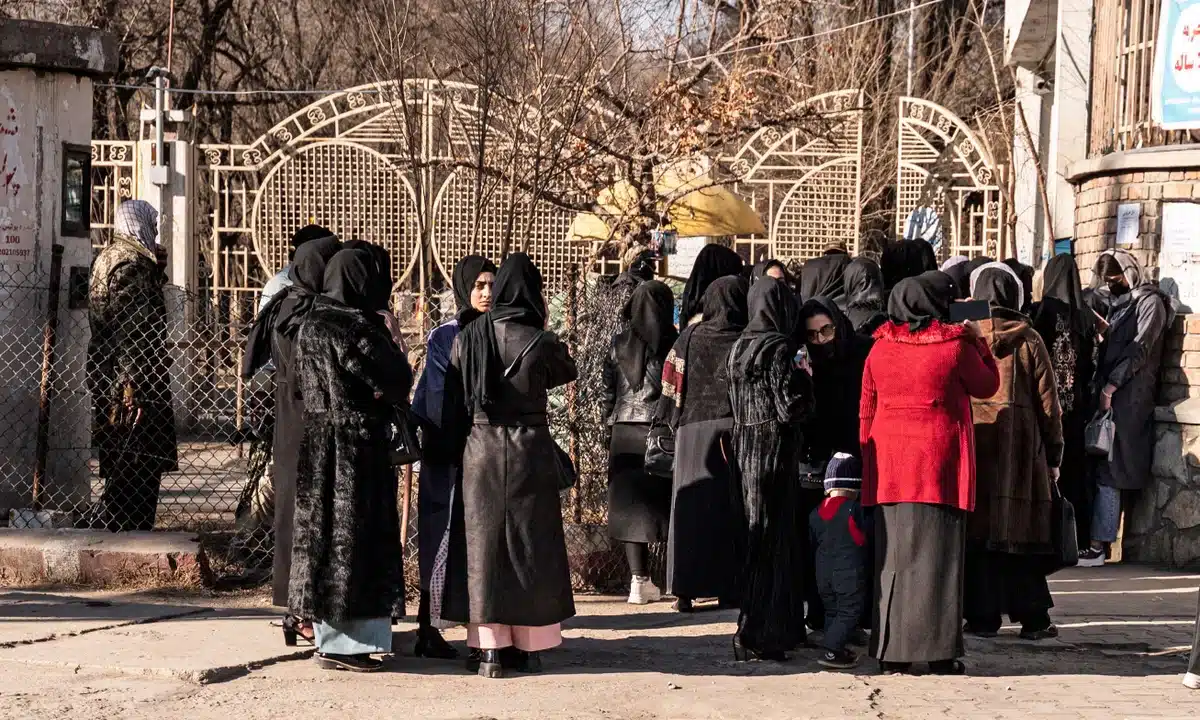Afghan Girls Face Education Crisis Amid Taliban Ban

As the new school year begins in Afghanistan, girls over the age of 12 remain barred from attending classes for the fourth consecutive year. This ongoing restriction has left many young women, like 15-year-old Amina, feeling hopeless about their futures. With over one million girls affected, the Taliban’s education policies have forced many to seek alternative forms of learning, primarily through madrassas, which focus on religious teachings but often lack comprehensive academic subjects.
Dreams Deferred: Amina’s Story
Amina’s life took a drastic turn when the Taliban regained control of Afghanistan in 2021. At just 12 years old, she learned she could no longer attend school alongside her male peers. “All my dreams were shattered,” she recalls, her voice filled with emotion. Amina had always aspired to become a doctor, inspired by the female surgeon who saved her life during a heart surgery. However, the education ban has left her dreams on hold.
Now 15, Amina expresses her sadness over the closure of schools. “When my dad told me the schools were closed, I was really sad. I wanted to get an education so that I could become a doctor,” she says quietly. According to UNICEF, the restrictions imposed by the Taliban have affected over one million girls, leaving madrassas as the only option for many to access education. While some families can afford private tuition for subjects like math and science, the majority rely on religious centers for learning.
Madrassas: A Double-Edged Sword
Madrassas have become a lifeline for many Afghan girls seeking education. Al-Hadith madrassa in Kabul, founded by Amina’s brother Hamid, serves around 280 female students. Hamid established the madrassa after witnessing the impact of the education ban on his sister. “When girls were denied education, my sister’s dream of becoming a heart surgeon was crushed,” he explains. The madrassa offers courses in midwifery and first aid, which have helped Amina regain some hope for her future.
However, the quality and scope of education in madrassas vary significantly. While some institutions have expanded their curricula to include subjects like chemistry and physics, concerns remain about the ideological content being taught. A report by the Afghanistan Centre for Human Rights suggests that madrassas may be used to promote the Taliban’s extremist views, integrating “extremist content” into their teachings. Critics argue that these religious centers cannot replace the comprehensive education offered by mainstream schools and universities.
The State of Education in Afghanistan
Afghanistan stands alone as the only country where women and girls are prohibited from secondary and higher education. The Taliban initially claimed the ban would be temporary, contingent on establishing an “Islamic” curriculum. However, no progress has been made toward reopening schools for older girls. The Taliban’s Ministry of Education asserts that approximately three million students are enrolled in religious educational centers, yet the quality of education remains questionable.
In a visit to the Shaikh Abdul Qadr Jilani madrassa, which educates over 1,800 girls and women, the lack of resources is evident. The building is cold and poorly maintained, with limited heating and inadequate classroom facilities. While the madrassa offers both formal and informal education, the emphasis on religious studies often overshadows academic subjects. Graduates from the informal section outnumber those from the formal section by ten to one, highlighting the disparity in educational focus.
Hope Amidst Adversity
Despite the bleak educational landscape, Amina remains hopeful. “I still believe that one day the Taliban will allow schools and universities to reopen,” she asserts. Her determination to become a heart surgeon reflects the resilience of many Afghan girls facing similar challenges. The UN special rapporteur on human rights in Afghanistan has raised alarms about the implications of the Taliban’s restrictive education system, warning that limited educational opportunities could foster radical ideologies and threaten regional stability.
Observer Voice is the one stop site for National, International news, Sports, Editor’s Choice, Art/culture contents, Quotes and much more. We also cover historical contents. Historical contents includes World History, Indian History, and what happened today. The website also covers Entertainment across the India and World.
Follow Us on Twitter, Instagram, Facebook, & LinkedIn

